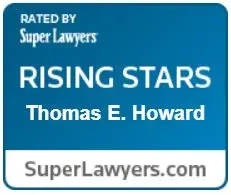Enforcement of Judgments | Citation to Discover Assets
How Do You Enforce Judgment in Illinois?
Answer: you get a citation served to discover assets on the debtor, the person or company the court entered judgment against.
People rush into court when they feel wronged to get a judgment against the person or company that damaged them. It can take years to reach the award of a court judgment. Then the winning party begins a long process of judgment enforcement.
A judgment is a decision made by a court in a lawsuit and obtaining a judgment means recovering any money that is owed by another party as provided by the terms given by the court in the judgment.
That being said, a judgment that you can’t collect on is worthless to the creditor. The purpose of this webpage is to offer you a practical approach on maximizing collection efforts to get the best recovery on your judgment.
What is a citation to discover assets in Illinois?
A citation to discover assets is a legal proceeding in which a creditor attempts to collect on a debt from a debtor. The citation is served upon the debtor and requires the debtor to appear at a hearing where the creditor can inquire about the debtor’s assets and income. If the debtor fails to appear at the hearing, the court may issue a warrant for the debtor’s arrest. In some cases, a citation to discover assets may be used to domesticate an out-of-state judgment in Illinois.
Got a Judgment to Enforce
Enforcement of Judgments with a Citation to Discover Assets
Ask any creditors’ rights or debt collection attorney in Illinois, they will assure you that the citation to discover assets (commonly called a Citation) is the main procedure for the enforcement of judgments. Many law firms practice law that focuses on enforcement of court judgments. Enforcing judgments can be complex litigation in a district court that enforces foreign arbitral awards, or simply enforcing judgements from out of state for a breach of contract for monies owed.
A Citation can be used to obtain an order that could be entered in a garnishment proceeding. It can also be used to enter a Charging Order against the distributional interest of the judgment debtor who has an interest in an LLC, and others that are similar.
In essence, the citation to discover assets is a tool to discover, freeze and recover assets, which is available for the creditor.
Above all, the citation to discover assets creates a continuing lien, or freeze on the assets. This is different from a traditional garnishment. It provides the ability for the judgment creditor’s attorney to discover assets that belong to the judgment debtor, pursuant to the liberal construction of the citation to discover assets statute in Illinois, which he believes that a respondent is in possession of the judgment debtor’s assets.
 The citation need not only be directed against the judgment debtor, but anyone that may have assets of the judgment debtor – for example a bank where the debtor has an account. The lien does not affect the respondents’ rights in property prior to service of the citation on them and it does not affect a lender or a bona fide purchaser’s rights who did not receive notice of the citation.
The citation need not only be directed against the judgment debtor, but anyone that may have assets of the judgment debtor – for example a bank where the debtor has an account. The lien does not affect the respondents’ rights in property prior to service of the citation on them and it does not affect a lender or a bona fide purchaser’s rights who did not receive notice of the citation.
The lien takes effect immediately after it has been served on the respondent, who is either the judgment debtor or a third-party. As such, it is a violation of the citation lien if any transfers of funds are made after receipt of the citation, without prior consent from the court for such transfer or disbursement.
Citation to discover assets for third-party respondent
If the respondent is a third-party (for example a bank), it is very important that the third-party provides answers and responses to the citation, even if it is not holding assets of the judgment debtor. A conditional judgment can be entered against the respondent for the full balance of the judgment if the respondent fails to answer the citation.
A creditor’s attorney should follow specific steps in obtaining a conditional judgment, such as service of a summons to confirm the conditional judgment following petitioning the court for such relief.
If the third party respondent fails to answer the citation after such service, and even after no action has been taken by the third party after confirmation by the creditor, the judgment will be entered against them where the creditor can collect from the third party for the entire amount! So if you get served with a third party citation by a judgment creditor in Illinois, answer or else!
The citation to discover assets does not end there. Illinois courts have more often than not held that a fraudulent conveyance action could be pursued in a citation proceeding under 735 ILCS 5/2-1402(c)(6). For example, the court permitted the citation to reach the indebtedness to the corporate debtor created when corporate funds were used to pay personal expenses of the corporation’s officers.
The citation to discover assets can also be used to force the judgment debtor to sell non-exempt assets to satisfy the judgment as well as appointing a sequester to sell certain types of property for which there is a limited market.
Not all assets in Illinois are subject to Citation liens – only non-exempt assets. Such As:
- Homestead Credit ($15,000)
- Wild Card Exemptiong ($2,400)
- Retirement Accounts
- Motor Vehicles ($2,400)
- Several Others Listed Under (735 ILCS 5/12-1001)
Additionally, Illinois recently enacted a new citation lien procedure which provides for enforcement help for judgment creditors. The amendment can be found at 735 ILCS 5/2-1402(k-10) which now provides that a judgment creditor who discovers property of the judgment debtor subject to the lien of a citation to discover assets may ask the court to impress a lien against a specific item of personal property, including a beneficial interest in a land trust.
Citation to discover assets or wage garnishment?
Another way to collect on a judgment is by wage garnishment. This process allows a debt collector to take a portion of the debtor’s paycheck to pay off the judgment. There are rules that must be followed when wage garnishment is used, such as how much can be taken and which debts can be paid this way. A wage deduction summons is required before installment payments on the judgment may begin.
There are also several ways for debtors to protect their assets from being seized by a debt collector. For example, certain types of property, such as tools of the trade or essential household items, are exempt from seizure. Additionally, some money, such as child support or Social Security benefits, cannot be garnished.
If you are trying to collect on a judgment, it is important to understand all of the available options and procedures. An experienced attorney familiar with Illinois Law can help you navigate the process and ensure that your rights are protected.
Special Procedures for Collecting on Judgments under Illinois Law
These are some collection procedures that are not so complicated or used as often as the citation to discover assets or garnishments, which may be considered for collecting on judgments.
Memorandum of Judgment – Judgment Liens on Real Property
Be sure to record a final and valid judgment against any real property owned by the judgment creditor by having a Judge sign a memorandum of judgment which will subsequently be recorded in the recorder of deeds where the property is situated.
This creates a judgment lien on the debtor’s real property and the property will need to be settled and released before it can be sold. Under Section 12-101, of the IL Code of Civil Procedure, a judgment is a lien on real property from the date a memorandum of judgment is properly recorded until 7 years from the entry of judgment unless the judgment is revived.
Do ensure to record the judgment order if the judgment debtor does not own real property (or have no knowledge of any), so it attaches to the debtor in their own capacity so that it will reflect on their credit report until satisfied.
Charging Order: Enforcing a Judgment against an LLC Member
Section 30-20 of the LLC Act (found at 805 ILCS 180/30-20) states that a creditor’s exclusive remedy is to obtain a charging order against an LLC members distributional interest.
Illinois courts have held that this is a special remedy designed to allow a creditor of an LLC member to realize the value of the debtor’s distributional interest in the LLC and also protect both the LLC’s ability to function and the other members LLC interest.
A motion requesting a Charging Order on the LLC member’s distributional interest must be filed by the judgment creditor with the Court. It is not necessary to name the LLC as a party defendant in this post-judgment action.
The purpose of this charging order is to put a lien on the debtor’s LLC interest and to ensure that any distribution that is due to the debtor can be paid to the creditor.
This lien can also be foreclosed by the creditor and sold at a Sheriff’s sale or a private sale, just like any other asset sale. It is to be noted that distributional interest does not include salary, wages, draws or reimbursements.
As such, for best practice, the creditor should file a citation to discover assets at the same time for the above listed assets together with a charging order on the distributional assets.
How Foreign Judgments are Enforced
The United States, the recognition and enforcement of foreign judgments is governed by local domestic law and the principles of comity, reciprocity and res judicata. The Foreign Judgement Act is the general principle of international law applicable in such cases is that a foreign state exercises the right to examine foreign judgments for four causes: (1) to determine if the court that issued the judgment had jurisdiction; (2) to determine whether the defendant was properly notified of the action; (3) to determine if the proceedings were vitiated by fraud; and (4) to establish that the judgment is not contrary to the public policy of that state. In order for a judgment from a foreign country to be enforceable in Illinois, it must first be domesticated.
Domesticating a foreign judgment simply means making it enforceable in the domestic courts of the country in which it is sought to be enforced. To domesticate a foreign judgment in Illinois, you must file a Petition to Domesticate Foreign Judgment with the Circuit Court where the debtor resides or is found. The petition must include: (1) a copy of the foreign judgment; (2) a certification that the foreign judgment is final and not subject to appeal; (3) proof that the foreign court had personal jurisdiction over the defendant; and (4) an affidavit from the plaintiff verifying that all requirements for domesticating the judgment have been met.
The party seeking to domesticate the judgment has the burden of proving that all of the requirements have been met. If the court finds that the judgment debtor was not properly served with process, or that the judgment is contrary to Illinois public policy, the foreign judgment will not be domesticated. The court also has the discretion to domesticate a foreign judgment only in part and to enforce it as if it were a domestic judgment.

Thomas Howard
Distressed Assets Lawyer
Whether you’re a bank or distressed asset purchaser, Thomas Howard can help you quickly recover your loans.

Thomas Howard was on the ball and got things done. Easy to work with, communicates very well, and I would recommend him anytime.
R. Martindale

Need A Business Lawyer?
- real estate contracts
- business contract disputes
- Shareholder litigation
- cannabis business
- fraud actions
- mechanic’s liens


